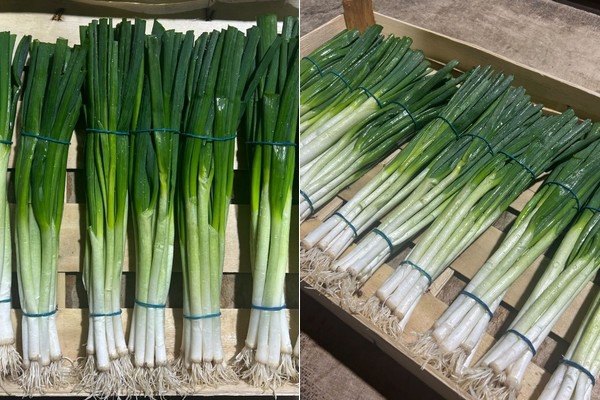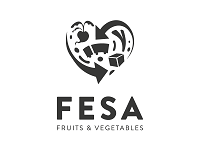Last week saw the harvest of the first, smaller quantities of Palatinate spring onions. Full volumes are expected from week 10, and about two weeks later, market-relevant quantities of radishes are also anticipated, estimates Jochen Fehmel of the vegetable cultivation and trading company FeSa Obst- & Gemüsehandels & Co. "We are not yet seeing any particular availability or quality situation and overall, we expect a balanced and normal season," he predicts upon request.
In the area of spring onions, German produce is partly in direct competition with more affordable imported goods. Fehmel: "Above all, the minimum wage, accounting for over 60 percent of the revenue of a particular vegetable or fruit in some cases, expensive and steadily rising operating costs, whether for seeds, fertilizers, or machinery costs, as well as politically tightened restrictions in handling our production tools, make it understandably difficult for German production to convince from an economic perspective. At the same time, there is a desire to meet societal expectations for regionalism and CO2 savings through local production of food from regionally bound primary production."
"Additionally, German production leverages the ace of freshness, sustainability in terms of CO2 savings by avoiding long transport routes, and short-term availability against long transport routes with uncertainties. The latter point plays a special role in the context of ongoing climate change, as delivery failures from far-flung cultivation areas are more frequent than ever," Fehmel ads.
Jochen Fehmel during FreshPlaza's visit last year. The company, based in Mutterstadt, produces not only spring onions and radishes but also raspberries, various types of open-field vegetables, and herbs, some organic.
The German spring onion season begins in early March and usually ends in November. "Significant fluctuations during the season have not occurred in recent years, in my experience. The holiday season mostly entails a predictable downturn, to which we respond during these times with reduced sowing. The trade's specifications can fluctuate from season to season or change, but they have remained almost similar in recent years. Regarding the use of transport packaging, the trend towards reusable packaging has been comprehensively implemented."

The first spring onions of this year's season were already harvested in week 7.
Palatinate: The stronghold of German spring onion production
Although spring onions are also produced in other cultivation areas, production still focuses on the Palatinate, observes Fehmel. "Furthermore, the product spring onion itself is a relatively stable demand item and can be well scaled. Regarding cultivation, the seeding has remained the same for us as a company. One year we reduced, another we produced a bit more; always in small steps and through scalability in the market, with few losses in the field."
At the current time, Fehmel does not expect significant increases in spring onion cultivation. "Cultivation-wise, many things have been tried in the past. Automation is a keyword that is becoming increasingly prominent in the foreground with the rising minimum wage. Individually, various primary produced products can be partially automated or even fully automated. Specifically for spring onions, however, we continue to rely on quality that can only be achieved by human hands. Therefore, in my view, harvest workers are the measure of all things to meet the highest demands of the trade and ultimately the end consumers."
For more information:
Jochen Fehmel
FeSa Obst- & Gemüsehandels GmbH & Co. KG
Im Grund 1
67112 Mutterstadt
Tel.: 06234 – 947 670
Fax: 06234 – 947 671 7
Email: info@fe-sa.de
www.fe-sa.de
